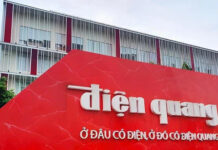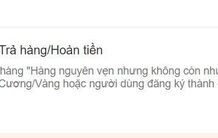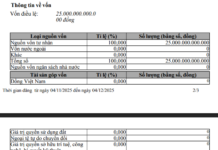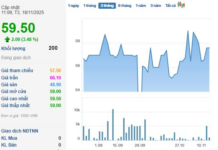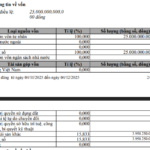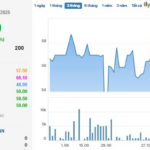As a construction engineer, earning thousands of dollars monthly—a dream of stability for many—Le Anh from Thanh Hoa carried a lingering concern: the decline of his hometown’s traditional fish sauce craft under modern market pressures.
His childhood was deeply rooted in the salty sea, where fish sauce became an indelible part of his memory, “seeping into every cell,” inseparable from his identity. Growing up, he witnessed the changing times: people increasingly favored “fast, convenient, and ready-to-use” products. Industrial fish sauce dominated 80%, even 90% of the market, leaving traditional fish sauce precarious. Consumers seemed to lack the patience for the “sweetness after the saltiness” and the cultural depth of this condiment that nourished generations of Vietnamese. Entire villages faced uncertainty. Young people left, few willing to continue the family tradition. The craft faced countless challenges: from labor-intensive production to rapidly changing tastes, market dynamics, and customer engagement strategies. At times, the profession nearly vanished.
Witnessing this, Le Anh couldn’t remain indifferent. He abandoned his engineering career, stable USD income, and borrowed capital to return home and revive traditional fish sauce—a risky choice few dared to make. For him, fish sauce wasn’t just a product on the table; it was the essence of time, the sea, and ancestral culture.

In a small coastal village in Thanh Hoa, a family-owned fish sauce factory emerged, later known as “Le Gia.” Unassuming yet ambitious, it embodied the desire to preserve a shrinking tradition. Though small, it held his dreams—an extension of childhood memories, a symbol of resilience against modernization, and proof that cherished traditions, nurtured with passion, could transcend Vietnam’s borders and conquer global markets.
01. Simply because I love fish sauce—without love, it can’t be done, not just for money
In just a few years, Le Gia expanded its factory—a seemingly brief journey externally, but internally fraught with challenges only insiders understand.
To establish itself in his homeland, the factory endured a seemingly endless approval process. Le Anh recounted: project proposals, planning adjustments, and document completion took nearly five years for approval. Over four rejections—enough to discourage anyone. But not Le Anh. He shared, “If business were solely for financial gain, people would invest in real estate. Quick profits, less hassle, no overthinking.”
Perhaps his persistence, despite repeated rejections, convinced local leaders of his grand vision. Eventually, the factory was approved.

Another proud milestone for Le Gia, and a testament to its “persistent dedication,” was entering the world’s most demanding markets with Vietnamese fish sauce and shrimp paste. Japan was the first export destination, a “golden gateway” for Le Anh. He believed, “If we succeed in Japan, any market is possible.”
He recalled a pivotal moment at an international exhibition. He invited Japanese partners to visit the factory—a simple gesture with a grand ambition to place traditional Vietnamese fish sauce on the global map. But having a factory wasn’t enough. Exporting to Japan required meticulous international-standard documentation, quality procedures, and safety certifications. Just the paperwork cost over a hundred million dong, plus dozens of tests.
Interestingly, the first export wasn’t fish sauce but shrimp paste. The initial order was just a few boxes after nearly two years. It wasn’t profitable—after clearing customs, logistics, and certification costs, it was a significant loss. But it was the only way to plant a strong seed for future growth.
“Knowing the order was small, we still did it, because without it, larger orders wouldn’t come. I’m committed to the long haul, doing things systematically,” Le Gia’s CEO affirmed.
After eight years, Le Gia’s greatest pride is its quality products, beloved by customers. Through dedication and innovation, Le Gia’s products (fish sauce, shrimp paste, natural seafood seasonings, and baby food seasonings) are now in most national supermarket chains and over 10 countries/regions (USA, Japan, South Korea, South Africa, Panama, Australia, New Zealand, Singapore…)
As of August 2025, among 126 OCOP 5-star National products, Le Gia has two (fish sauce and shrimp paste), the only 5-star entity in Thanh Hoa. The company also has one 4-star OCOP product (small shrimp paste) and one 3-star OCOP product (dried shrimp flakes).

02. Honest, dedicated business ensures long-term sustainability
At Le Gia, every member embraces the CEO’s core philosophy: business success isn’t about quarterly reports but about delivering value. Profit is the natural result of consistently providing genuine value to customers and the community.
Globally, concepts like green growth, SIB, CSR, ESG, and inclusive business are trending. All emphasize business with social responsibility. Le Gia’s development rests on four pillars: Vision-company model; Operational governance; Leadership and culture; and Collaborative teams. Among these, Le Anh values people most—the enduring “competitive weapon.”
“For me, sustainable growth means growing while preserving our essence. Each step should bring revenue and create value for people, communities, and the environment,” he shared. This has earned Le Gia high customer loyalty and brand affection.

Le Gia’s ethos prioritizes trust—the foundation for all relationships. Trust reflects not just sustainable business philosophy but also personal integrity. This trust makes customers, partners, superiors, and colleagues believe in and use Le Gia products.
Despite operating in traditional production, Le Anh embraces market trends for growth. Instead of clinging to the past, he integrates new technology, e-commerce, and AI into operations and personnel management. He believes tradition doesn’t mean outdated; it must adapt to modern life, from refined packaging to professional customer engagement.
“My view on digital transformation is using technology to enhance customer satisfaction, internal management efficiency, and cost reduction. Technology supports work but doesn’t replace the human touch,” Le Gia’s CEO emphasized.

Le Anh also innovated by turning the factory into a unique tourism experience. Visitors witness the intricate fermentation process and hear vivid stories of fishermen’s lives—salty tales of the sea, sun, and coastal people.
Reflecting on his journey, Le Gia’s owner is most moved not by cold growth numbers but by simple, profound moments: seeing his products on supermarket shelves, in family kitchens, or friends sharing posts tagging him. These quiet joys, deeply felt by producers, are his greatest happiness.
He smiles, “I think it’s the simple joy of producers that billion-dollar CEOs in other fields can’t experience.”
Thus, no matter how successful Le Gia becomes, Le Anh remains humble. He sincerely requests, “Please don’t call me CEO. Call me ‘bần ngư’.”
Why Businesses Choose VNPT’s XGSPON for Acceleration
In the pharmaceutical industry, where data accuracy, stability, and real-time updates are non-negotiable, internet speed is no longer a luxury—it’s the backbone of operational efficiency and competitive edge.
Circle K Deploys 35-Year Veteran Executive to Vietnam, Aiming for 1,000-Store Milestone
Circle K Vietnam has announced the appointment of Mr. TC Cheng as its new Chief Executive Officer, effective October 30, 2025. This strategic move is poised to herald a new era of robust growth for the international convenience retail brand in Vietnam.
“Make in Vietnam” Goes Global: Vietnamese Defense Tech Firms Partner with UAE Giants to Launch OEM Model
Viettel and EDGE are collaborating to research and establish an OEM (Original Equipment Manufacturer) production model in Vietnam. This partnership focuses on manufacturing components, assemblies, and modules for EDGE’s product lines, leveraging local expertise and resources to drive innovation and efficiency.












